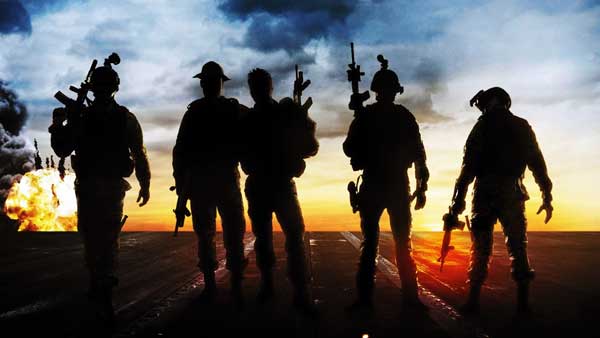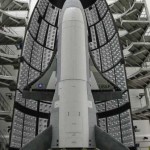
History bears witness that a strong, sovereign and independent state has always been backed by a strong army, in today’s context military, yet paradoxically, the military is a threat in being for the ruling elite and polity; the spectre of the ‘man on horseback’. Therefrom follows the requirement and doctrine of positive civilian control over the military. England, the mother of modern democracy, imbibed this truism when on 20 April 1653 Oliver Cromwell marched into Parliament and took over as ‘Lord Protector’ of a united Commonwealth of England, Scotland and Ireland for 11 years and ruled through a parliament of generals. The experiment failed and the lesson was learnt. All modern democracies have inbuilt safeguards into their constitutions and institutions to ensure civilian control. ‘Civilian control’ implies institutional subordination of a competent professional military to the elected political executive for the employment of the military as an instrument of national power for the furtherance of national interests.
Distinct and dangerous from civilian control is ‘political control’. It attempts to align the military to the ideological orientation of the political party of the ruling elected political executive for the purpose of political objectives. A very proud, professional and competent German military fell victim to such control preceding World War II with ruinous consequences for Germany and the world at large. It was one of the cardinal principles of the Duke of Wellington, the unquestioned military and national hero after Waterloo 1815, (and Commander in Chief thereafter for life for 30 years), that the army must be kept free from the faintest suspicion of political control as distinct from civilian control. Civilian and political control are not a one-time act, they are processes ingrained over a period of time through responses to events and issues.
In nominating the present Army Chief, the political leadership appeared to have exercised such civilian control which is to be welcomed and not disputed. The stated reason for doing so being competence and suitability. Such control may be expected in the appointment of the Chief of Defence Staff (CDS) and Service Chiefs in the near future. Chiefs appointed by superseding others on the grounds of suitability or competence are under no obligation to align themselves to the political ideology of the party in power. Any suggestion of doing so would reinforce perceptions that the appointment was for reasons other than competence. Perceptions are important, more so in today’s world of instant media communication. That calls for circumspection in words and actions as also demonstrated competence by the selected appointee. However, recent events cannot but create apprehensions in the minds of professional military men and civil society at large of the dangerous drift towards political control.
Much political mileage was sought to be derived from the cross LOC action post the Uri attack, the cross-border action into Myanmar and thereafter the response after the Pulwama incident. Whatever be the military significance and effect on the adversary of such actions are well understood by the military leadership and needs no public amplification. The message, if any, is also well understood by the adversary’s military. Much as the ownership and credit of these actions were played up for political mileage, the military leadership was not duty bound to add to the discourse. Post the recent parliament decision and actions on J&K of 05 August, the political leadership announced that the dispute was about reclaiming Pakistan Occupied Kashmir (POK) and had nothing to do with the Indian state of J&K. As to when and how it is to be done is a matter of deliberate policy formulation and preparation and is best left for the future. However, sober professional military opinion suggests that the military feasibility, practicality and capability at the present juncture, to say the least, do not allow any such an undertaking. Declarations by the military leadership of being in readiness for such an undertaking only add to the creeping perception of the ‘political control’ of the military.
On the other hand, the senior leadership is seen as unable or incapable of addressing the concerns of the rank and file and safeguarding the service interests in terms of organisational structures, infrastructure, critical personal equipment, pay commission anomalies, OROP, NFU and degradation of rank equivalence and status. This dent in mutual confidence will only be enlarged if the perception is reinforced by the leadership being politically compromised.
Service chiefs embody the pride, prestige, hopes and aspirations of the service. Military leadership is built upon credibility and mutual trust. Any perception amongst the rank and file that the senior leadership has secured its appointment by unsoldierly means and is politically aligned cannot but destroy faith in the leadership with disastrous consequences. Retired senior officers aligning themselves with political parties and inclined towards electoral politics immediately after shedding their uniform is an ominous portend.
US President Theodore Roosevelt while articulating his foreign policy famously recalled the African proverb ‘Speak softly and carry a big stick — you will go far’. President Truman practiced it at the onset of the cold war. So must our military leadership.
We already have a ‘committed’ bureaucracy and police fully under ‘political control’ both at the centre and the states. The flurry of postings and transfers after every election needs no elaboration. Committing the military similarly would be disastrous. The military is a national institution. The nation, and more importantly the military leadership itself, needs to preserve it.





It is not ‘civilian’ control of the military but political control. The civil and military wings of the government are subordinate to a political authority, all over the world, democracies, autocracies and totalitarian regimes included, invariably. So please keep this in mind